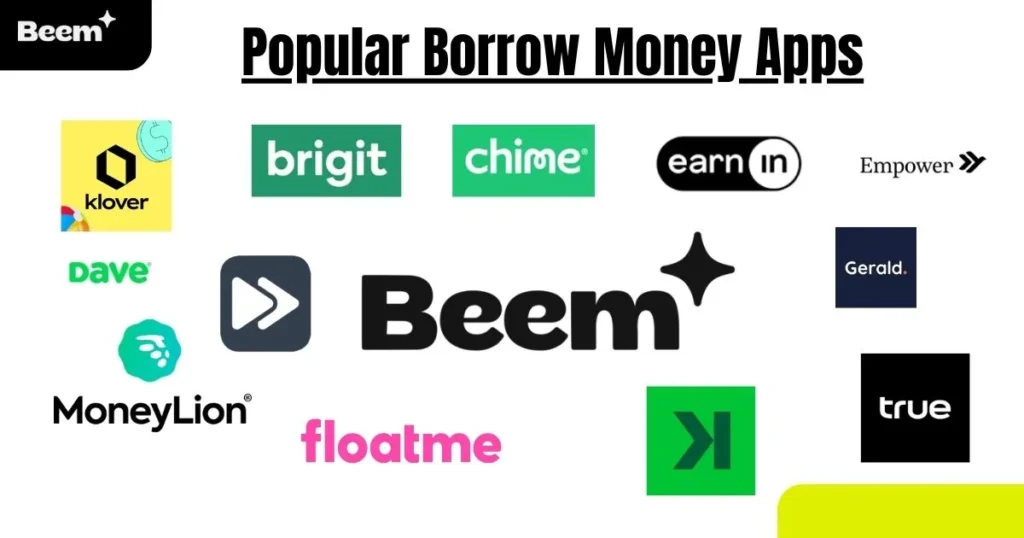At A Glance
As an independent professional – like a freelancer, gig worker, or small business owner – you can experience some special challenges in terms of financing. Unlike your traditional employee counterparts, your earnings aren’t set or predictable. Slow client payments, unexpected operating expenses, or unexpected business needs, such as equipment repairs, software subscriptions, etc., can have you scrambling for fast cash. Instant cash loans for self-employed professionals are helpful in such scenarios.
When you have to pay bills quickly but do not have time to wait for conventional loans or deal with lengthy approval procedures, instant loan options are available specifically for self-employed individuals like you. These options provide quick approvals, low paperwork, and flexible requirements, which make them a perfect option for self-employed individuals.
In this post, we’ll explore how to qualify for instant loans, the various types available, potential pitfalls, and best practices — plus how Beem stands out as a quick and flexible funding option.
Why Self-Employed Individuals Often Need Instant Loans
Cash Flow Gaps
One of the most common issues self-employed individuals face is cash flow gaps. If you’re a freelancer or a small business owner, delayed client payments, inconsistent work, or fluctuating revenue can lead to short-term deficits. These cash flow problems may prevent you from paying critical bills like rent, vendor fees, or employee wages on time.
A quick loan can bridge these gaps, allowing you to cover expenses until the next paycheck or client payment.
Equipment or Operational Costs
Operations for freelancers, gig workers, and small businesses often depend on specialized equipment or software. A sudden repair or replacement—whether it’s a laptop malfunction, software subscription renewal, or other essential tools—can disrupt workflow and slow down productivity.
An instant loan can provide immediate funding to fix or replace the equipment, ensuring your business runs smoothly with minimal downtime.
Growth & Opportunity
As a self-employed professional, seizing business opportunities often requires quick action. For example, a client may request a last-minute project, or you may find bulk discounts on inventory that could save you money in the long run.
In such cases, having quick access to funds can make the difference between seizing the opportunity or losing it. Instant loans provide the financial flexibility needed to grow and expand your business quickly.
Also Read: Instant Cash Advance for DoorDash Drivers
Challenges Self-Employed Borrowers Face
Minimal Traditional Documentation
Self-employed individuals often face a hurdle when securing traditional loans: banks and lenders generally require W-2s, pay stubs, or other proof of consistent income. However, self-employed professionals rely on 1099 forms, invoices, or bank statements to prove earnings. This can slow approval times and make qualifying for loans through traditional channels harder.
Fortunately, many alternative lenders now accept these non-traditional forms of documentation, offering self-employed borrowers a way around this obstacle.
Variable Credit Profiles
As a self-employed individual, your personal and business credit might be in the early stages of development, and income fluctuations can make lenders cautious. Since your earnings may vary from month to month, it can be more difficult for lenders to assess your ability to repay loans.
This uncertainty can lead to higher interest rates or loan rejections, making it more challenging to secure affordable financing.
Higher APRs & Fees
Many instant loan services for self-employed individuals carry higher APRs and fees than traditional bank loans. These premium rates help lenders mitigate the perceived risk of lending to self-employed borrowers.
It’s important to check the total cost of the loan and the repayment terms to ensure you’re not overpaying or committing to terms you can’t afford. Be sure to read the fine print carefully to avoid any surprises.

Top Instant Cash Loan Options for the Self-Employed
1. Beem: A Fast, Flexible App for Instant Funds
How Beem Works
Beem offers microloans or small cash advances to self-employed individuals, providing access to funds within minutes or hours. By linking bank accounts or providing digital statements, borrowers can verify earnings without using traditional pay stubs or tax forms.
Beem’s process is simple, and funding is often fast, depending on your bank’s processing time. This makes Beem a fantastic option for self-employed professionals who need quick cash without the paperwork burden.
Why It’s Ideal for Self-Employed Pros
Beem is an ideal option for self-employed individuals because it uses alternative data (such as bank deposits or gig platform earnings) to determine eligibility. Unlike traditional lenders that focus heavily on credit scores, Beem takes a more holistic approach to evaluating your financial history. You’re more likely to qualify for a loan if you have a consistent deposit record or a history of steady gig income.
Pros & Cons
Pros:
- Quick approval and funding, often within minutes or hours.
- Minimal documentation and credit checks make it ideal for self-employed individuals.
- Transparent fees and user-friendly mobile app.
Cons:
- Borrowing limits may initially be modest for new users.
- Be mindful of any subscription fees or service charges, which may apply depending on the platform’s terms.
2. Online Personal Lenders Specializing in Gig Economy
How They Work
Several online personal lenders cater specifically to gig workers and self-employed individuals. These lenders often accept bank statements or payment platform records (such as Stripe, PayPal, or Square) as proof of income, eliminating the need for traditional documentation like W-2s.
Automated underwriting processes make applying easy, and approvals can happen in as little as 24 hours.
Pros & Cons
Pros:
- Minimal paperwork and fast approval times.
- Flexible income verification, catering to gig workers, freelancers, and small business owners.
- Some lenders offer same-day funding.
Cons:
- High APRs if your credit score is low or your income is inconsistent.
- Rates can vary significantly between lenders, so it’s essential to compare options.
3. Merchant Cash Advances (For Small Business Owners)
How It Works
A merchant cash advance (MCA) is a financing option where you receive a lump sum payment based on your business’s future sales. Typically, the repayment is made by deducting a percentage of your daily or weekly credit card or online sales.
This type of loan is ideal for small business owners who have consistent sales but may need immediate cash for operational costs, inventory restocks, or other expenses.
Pros & Cons
Pros:
- No collateral is required; loan approval is based on steady sales.
- Fast approval and funding, sometimes within 24 hours.
- Flexible repayment terms, as repayments are tied to your sales volume.
Cons:
- Factor rates can be steep, leading to higher effective interest rates.
- Daily or weekly deductions can strain cash flow if sales decline.
4. Invoice Factoring (For Freelancers Invoicing Clients)
How It Works
Invoice factoring is a financing option where you sell your unpaid invoices to a factoring company at a discount (typically 80–90% of the invoice’s value). The factoring company then collects the payment directly from your client.
This option is ideal for freelancers or businesses that provide services on credit with delayed payment terms, such as net 30 or 60 invoices.
Pros & Cons
Pros:
- Fast access to cash, especially for freelancers who need funds while waiting for client payments.
- Approval happens quickly, typically within a few days.
Cons:
- The factoring company’s fees reduce the value of your invoice.
- Your clients may be informed that their payments will go directly to the factoring company, which could affect your business relationships.
5. Peer-to-Peer (P2P) Lending Platforms
How It Works
Peer-to-peer lending platforms connect borrowers with individual investors who fund their loans. Unlike traditional banks, these platforms allow you to apply with bank statements, 1099 forms, or other non-traditional documentation.
Approval and loan amounts depend on your credit profile, but P2P lending can offer more lenient terms than conventional banks.
Pros & Cons
Pros:
- Potentially lower rates than payday loans or traditional banks.
- More flexible than traditional lenders, with options for self-employed borrowers.
Cons:
- Funding can take several days, so it’s not always an instant solution.
- Interest rates and terms depend on your credit profile and the P2P platform.
6. Personal Lines of Credit or Credit Union Loans
How They Differ
A personal line of credit allows you to borrow only what you need, paying interest on that portion. Credit unions may also offer personal loans with more favorable terms if you’re an existing member.
Speed & Availability
Personal lines of credit can be arranged relatively quickly, especially if you have an established relationship with the credit union. While not always instantaneous, these loans are typically faster than traditional bank loans and may offer better terms.
Also Read: Instant Cash for Gift Cards
Tips for Fast Approval & Responsible Borrowing
Prep Key Documents
To ensure a quick approval process, have your essential documents ready. Having these documents prepared will speed up the review process for most lenders. For self-employed individuals, these might include:
- Bank statements (3 to 6 months)
- Tax returns (if applicable)
- Payment histories from gig platforms (PayPal, Stripe, etc.)
Keep Credit Healthy
Even though lenders like Beem focus on alternative data, a healthy personal credit score can help you secure larger loan amounts and better rates. If you haven’t checked your credit report recently, do so before applying to ensure it’s accurate.
Borrow Only What You Need
While it can be tempting to borrow more, especially if you qualify for a larger loan, it’s crucial to borrow conservatively. Smaller loans are easier to repay and help you avoid getting stuck with high-interest debt.
Separate Business & Personal Finances
Keeping your personal and business finances separate simplifies record-keeping and makes it easier for lenders to assess your business revenue. Consider using separate bank accounts for business and personal expenses, and track your business transactions carefully.
Common Pitfalls & How to Avoid Them
High Interest, Predatory Terms
Some instant loan providers target self-employed individuals with steep fees and high interest rates. Always compare APRs, read the fine print, and check for hidden charges or prepayment penalties before committing.
Unpredictable Sales or Client Payments
Overestimating your future earnings can lead to trouble if you can’t repay the loan on time. Be conservative in your financial projections and ensure your income is sufficient to meet repayment terms.
Mixing Personal & Business Debt
Mixing personal and business debt can complicate taxes and budgeting. Whenever possible, keep business borrowing separate from personal borrowing to simplify tax filing and financial management.
Short Repayment Windows
Some instant loan providers require repayment within a very short timeframe, which can lead to cash flow problems if your revenue cycle doesn’t align with the loan terms. Choose loan options with repayment schedules that match your business income.
Also Read: Use Cash Advance Apps Without Falling into a Debt Trap
FAQs on Instant Cash Loans for Self-Employed
Do I Need Formal Proof of Employment as a Freelancer?
Many lenders and apps like Beem accept alternative documentation, such as bank statements, gig-platform deposits, or 1099 forms.
How Quickly Can Beem Provide Funds?
Beem can provide funds within minutes or hours once you’re approved, depending on your bank’s processing time.
Which Option is Truly ‘Instant’?
Merchant cash advances and some online lenders offer same-day approval and funding. Invoice factoring may take a few days for first-time setup, but subsequent transactions can be much faster.
Can I Use These Loans to Improve My Credit Score?
Some lenders, including specific P2P platforms, report to credit bureaus. Be sure to ask your lender whether they report positive repayment activity.
Are There Loans With No Credit Check?
Some alternative lenders focus on bank deposits or sales records rather than credit checks. These loans may come with higher fees or interest rates.
How Much Can I Borrow as a Self-Employed Worker?
Your borrowing limit depends on your income, credit profile, and lender’s policies. Microloans typically range from $100 to a few thousand dollars, but larger loans may be available if you have a strong cash flow.
What If I Can’t Repay on Time?
It’s essential to communicate with your lender immediately if you can’t repay on time. Some lenders may offer extensions, but failure to repay can result in additional fees or damage your credit score.
Conclusion & Key Takeaways
Beem, merchant cash advances, invoice factoring, and P2P lending platforms are some of the many options for instant cash loans for self-employed professionals. Each option has pros and cons, depending on your business model, financial situation, and immediate needs. Remember:
- Always compare APRs, fees, and loan terms before applying for a loan.
- Borrow only what you need to avoid unnecessary debt.
- Keep business and personal finances separate to simplify the borrowing process.
Using instant loans judiciously and responsibly is key to maintaining good financial health. Borrowing when necessary can help keep your business running smoothly, but over-reliance on credit can lead to financial stress.
Have you tried Beem or other instant loan services? Share your experiences or ask any questions in the comments below! If you want more tips on gig economy finance, credit-building, and loan comparisons, download the Beem app here.






